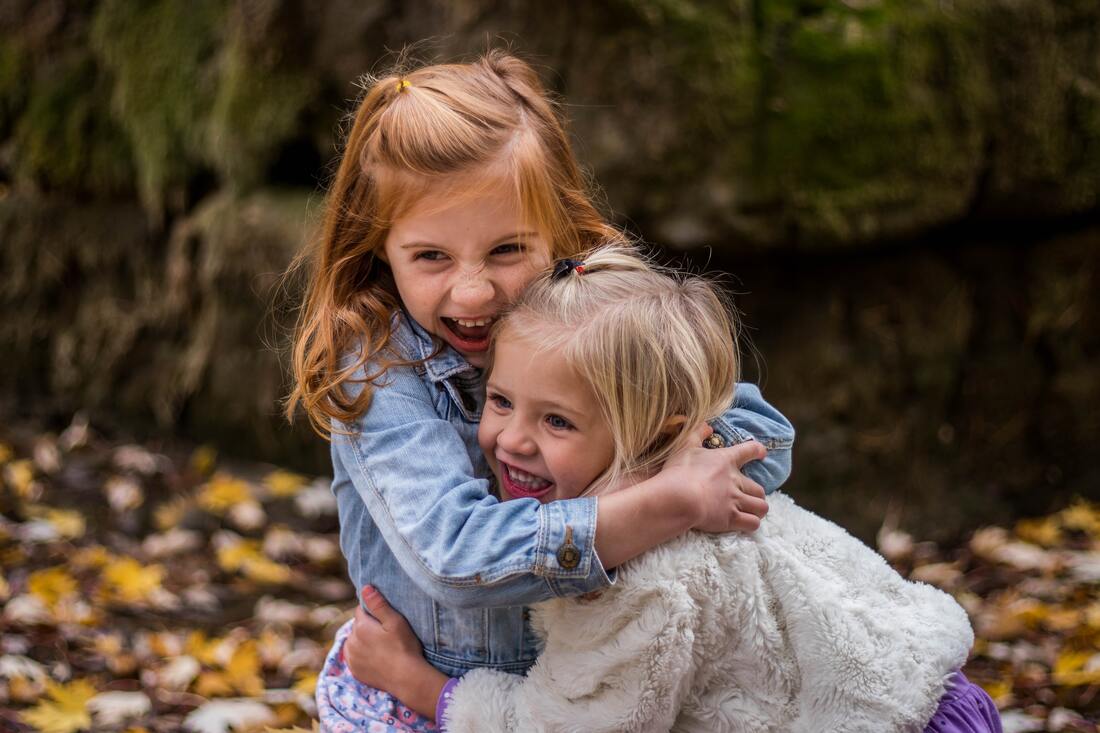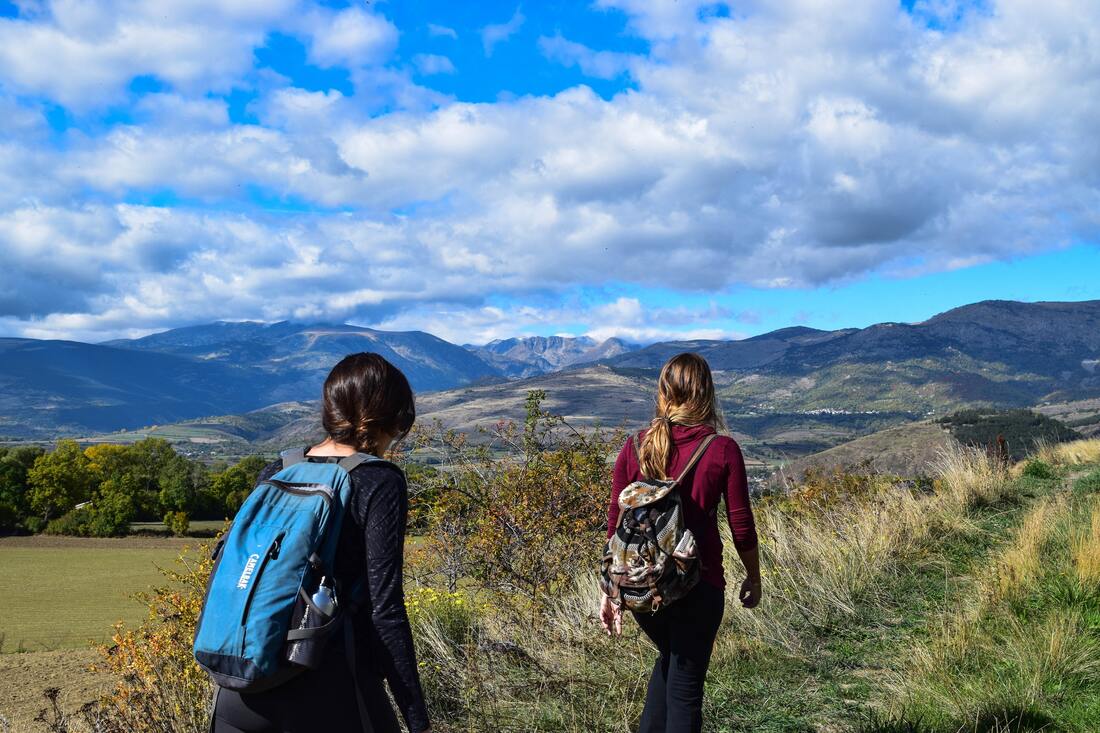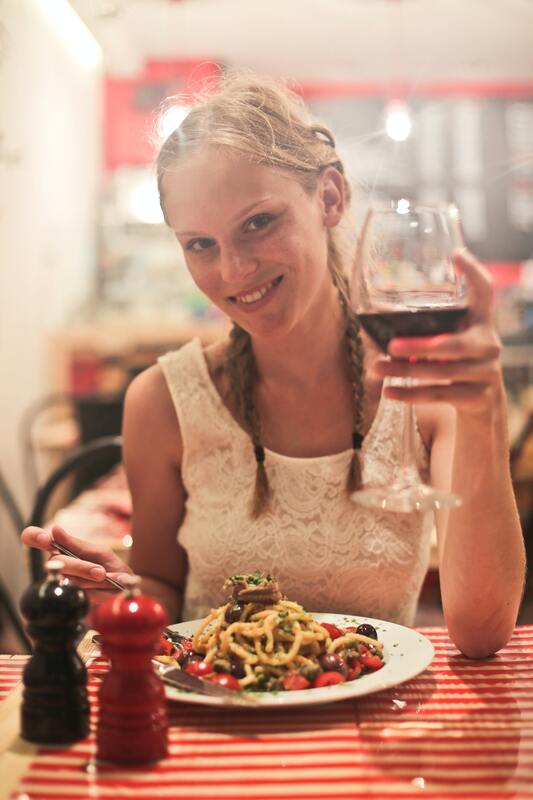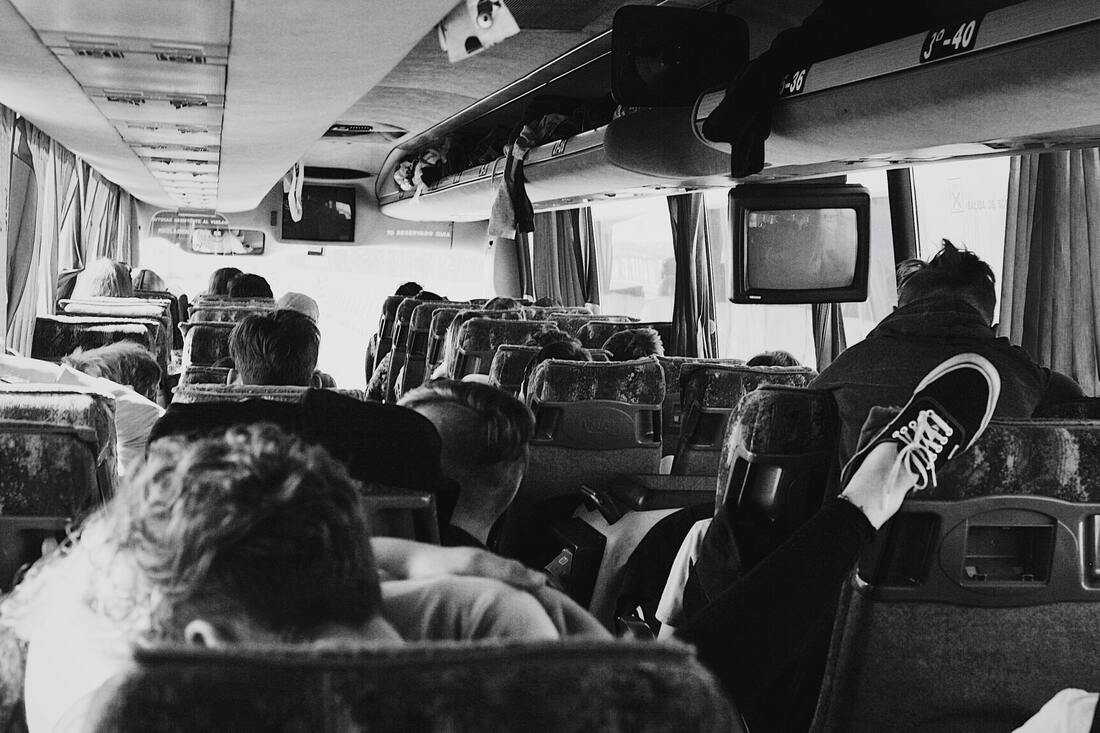|
Photo from Pexels Have you ever watched the movie "Runaway Bride" with Julia Roberts and Richard Gere? Well, I have, and I just love that movie! There are several reasons for why I love it so much: I love Julia Roberts and Richard Gere, I love romantic comedies, and I love that there's always something to learn from the story. In this particular movie, I learned the importance of knowing what you want. I learned that it's important to do things because you love doing them, and not just because you want to please someone else or avoid hurting their feelings. Still, that's very often what we end up doing: We do certain things because we don't want to look bad in someone else's eyes, even if we hate doing it or at least don't really enjoy it. Maybe you can relate? Maybe you agree to go on a hike in the mountains even when you don't feel like it. Maybe you say yes to helping people out every time they ask, even if they never do things for you in return. Maybe you always let your friends choose the movie, even if their taste in films is very different from yours. But you never say anything because you don’t want any drama or conflict. Being a people-pleaser If this sounds like you, you should stop that. Seriously. It will make you ill. "But what if the other person gets offended or hurt if I refuse to oblige them on things that are important to them? Shouldn't I just sacrifice my own needs to make that other person feel good?" you might ask. Well, I'm not saying that there aren't occasions where we should absolutely do that. If someone is having a difficult time, maybe you can help them by putting your own feelings aside for a little while. And sometimes we all have to compromise. But what I’m talking about is not that. What I’m saying is that you shouldn’t always do that. You can’t always do what everyone else wants you to do. We're not doing anybody any favor by being totally self-effacing. Not in the long run. We're definitly not doing ourselves any favor by it, and - believe it or not: We're actually just as important as any other person! You see: I have first-hand experience with this. I used to be like that. More often than not, I felt that I had to say yes to things when I really wanted to say no, and it didn't make me feel happy. In the long run, I will go so far as to claim that it actually made me ill. At least it definitly wasn't healthy. My point is: you’re not helping anyone by being a people-pleaser. “I would never end up like this …” Take Maggie Carpenter in the movie "Runaway Bride": She was so eager to please her boyfriend and "be a good sport", that she was willing to go along with any of his plans, whether it was leisure activities, what they should eat for dinner, - or whatever - even if she didn't really like the things he suggested. It wasn't until her wedding day that she realized that this wasn't what she really wanted, and ended up leaving the groom at the altar - three times. Of course, this is the extreme version of people-pleasing. You and I probably wouldn't take it that far before realizing that a relationship or a situation isn't right for us, and that we have to take our own true feelings into consideration .... Or would we?? Let me give you some examples of how I became a people-pleaser, and see if you can relate: How do we end up as people-pleasers? I don’t know what your childhood was like, or what you’ve experienced in life. But I grew up in the 1960s and '70s in a small town, in a Christian family. My parents were the best parents you could wish for, but they were very religious and brought me up according to their beliefs. Because of when and where I grew up, and my family's religious beliefs, there were a lot of activities I felt I couldn’t participate in. It wasn't what was "proper". Because I didn't want to stir up emotions or create conflict and drama, I ended up just trying to please my parents and my peers and not pursue other interests. I kept it all inside, but I felt bad about it and thought that I was probably not a "good Christian". I felt that I should try my best to make my parents happy and just do what I thought they'd approve of. So that's what I did. I became a people-pleaser. In addition, I’ve always hated conflict. Ever since I was a little girl, I've had a highly developed conscience and I was always in complete agony if I did anything I shouldn't or had even the most innocent argument with my best friend. If we had words and fell out, I would torment myself for hours with guilt, and could be seen paving the street back and forth outside my friend's house until her father told her to go outside and put me out of my misery and become friends with me again. She told me this just recently, and I just had to laugh when I heard it, because it was quite typical for how I was back then. I never knew, though, that her father could read me so accuratly and actually told her to go out and talk to me.  Photo by Trinity Kubassek from Pexels So with me hating conflict and not wanting to disappoint my parents, I did a lot of people pleasing. Not just as a child, but as an adult too And I was like this for many, many years, even after becoming an adult. Even when I was in my late twenties I felt guilty if I did something I thought my parents wouldn't approve of if they had known, like drinking wine or going to the movies. It was crazy! I understood that I had to change this, because I couldn't go on living my life just to please others, - or be restricted in what I could do or not do because of some misunderstood obligation to my family or religion or someone else. Because it was misunderstood. Nobody expected or wanted me to behave like that. It was just the little girl in me, the one who didn't want to upset or hurt anyone, that sort of sat on my shoulder and whispered in my ears all the time. Just like Maggie Carpenter in "Runaway Bride" I had to address each issue and find out what MY opinion was. Did I think that drinking wine was a sin? No! It might not be good for me to consume large amounts of alcohol, but then I never did, so what was the problem? I decided that I liked red wine, and that it was perfectly OK for me to drink some as long as I felt that I was in control. And did I think that going to a movie theater was a sin? No! I love watching movies, and there are so many good ones out there! Photo by Andrea Piacquadio from Pexels How always putting everyone else first is self-effacing Little by little, I started to get out of that destructive pattern of always considering what others would think before I said or did something. I had to work hard on myself to not feel guilty about following my own heart, but I gradually got better and better at it. But I guess it had been a part of my life for so many years and sort of had become second nature to me, that getting rid of this behavior completely was really, really hard for me. It actually went on for many, many years, - decades, actually. Even after I got married and had kids. I just didn't feel good about drama and conflict, so I tried to avoid it by being "nice" and put an end to any discussion or bad feelings. But over the years, it made me feel resentful towards some of the people closest to me, because this pattern of behavior told them that I would accept things if they just stood their ground, so this happened again and again. I said yes to doing them favors or go along with whatever they wanted to do, even when I'd rather do something else. And they didn't consciously try to manipulate me, either, - they just had more confidence and didn't have any problem with doing what they wanted to do, so that's what they did, and I accepted it. Over the years, this made me feel more and more bad about myself and my life, and - like I said - it made me feel resentful towards some of the people close to me, because I felt that things mostly went their way and not mine, and that I was somehow being manipulated, even though that was nobody's intention. I knew that it was really up to me to teach others what I would or would not accept, and that hey couldn't possibly know what I preferred if I never spoke up about it. So of course they did what they thought was best, and never gave it a second thought as long as I never protested. So it was really my own fault. I knew I couldn't go on like this anymore. I felt that I had somehow lost myself over the years, and I had felt for so many years that I needed to be someone other than who I really was, in order to be accepted or liked, - even wrongfully so. This made me feel really bad. I knew something had to change, and as time went by, I became more and more aware of that. Photo by Ott Maidre from Pexels A life-altering experience Then, in 2008, something happened that made me realize this to the fullest. I won't go into details about it, but let me just say that I went on a bus journey, and during that trip I had a travel companion who was 20 years younger than me. We had so much in common, even the same kind of humour, so we laughed and talked and I felt that I could be completely myself all the time without feeling that I embarrassed anyone with it. When I came home from that trip, I felt different. I felt that I had become more confident about who I was, and that I was actually completely OK when I was just being ME. There was nothing wrong with me at all. I was just different from some of the people I had around me, and I needed to let them see it if were to have the good life that I knew I should and could have. I had to start being unapologetically ME. No more excuses for that! From then on, I started searching for ways to manage this change inside. I searched for tools that could help me navigate new waters, navigate myself into a new future where I could live in alignment with who I was. The power of saying no That's when I came across some books about how our thoughts create our reality, and as soon as I started reading, I knew that it was true. It resonated with something deep inside of me, something I'd always known, but kind of had forgotten about. And I realized that to live in alignment with who I truly was, I had to find out what was really important to me. I had to be honest with myself. Dig deep and find out what it was that gave me joy. What did I truly love? What would I do if I could do anything in the whole world? And I had to learn to say NO to other people when they asked me to do things I didn't really want to do. I had to stop being a people-pleaser. Set some boundaries. I also had to learn how to silence or shut down the negative chat-box in my head. The voice that was constantly talking myself down and taking away my confidence. Because that was something that was deeply rooted in me: My ability to excuse everybody else and beat myself up whenever there was a situation of conflict in my life. So I did the work. I started analyzing everything in my life. I got clear on what I truly wanted and what was right for ME. And I learned that to be happy, I actually have to choose it. Happiness is a choice. What happened after that "awakening" on the trip in 2008 is a long story. It's a process that's been going on for over a decade now, a process that has lead to big changes in my life. The short version is that I got divorced, moved to a new town, started a new life. And my personal inner journey has continued to this day, and will probably never end. It hasn't been easy, but I'm feeling happier, more fulfilled and more in alignment with myself than I've ever been. I know what I want. I know who I am. I haven't managed to stop being a people-pleaser all together, - I guess that went on for so many years that it became almost second nature to me, so getting rid of it completely has been hard, - but at least I've reached a point where I correct myself quickly when I notice that I'm back on that path, and I do it with more and more success every time. Stop being a people-pleaser and start living the life you want Being aware of these things is a big step in the right direction, and also knowing that I don't have to please everybody else or be the one to make excuses for my opinions or my behavior all the time. And you don't have to, either. In fact, you shouldn't. You might end up losing yourself and not knowing who you are anymore. I hope my story has convinced you of that. You need to teach people how to treat you. Set some boundaries, and be clear about them. You don't have to become aggressive about it. Just start showing others what you truly want, or what you can or cannot accept, and do it in a gentle way. Find ways to show them that you're no longer willing to be treated like a door-mat. You can do this! If you've been a people-pleaser for a long time, you'll probably find it hard to change, but start training NOW. Little by little, you'll make it. Learn more about living the good life in my course If you want to know more about how you can stop being a people-pleaser and start living more in alignment with who you are and live with intention, you don't want to miss out on the course that I've created to help you kick-start your life in a better direction. Sign up today, and you could be well on your way to living your best life in just 5 days!
0 Comments
|
Categories
All
Archive
November 2022
|
Copyright www.elsekosberg.com 2023
CONTACT INFORMATION:
E-mail: [email protected]
Mobile phone: +47-97 64 93 54
IF ALL YOU SEE IS AN EMPTY SCREEN: SCROLL UP TO FIND THE INFO!
HVIS DU KUN SER EN TOM SKJERM: SCROLL OPP FOR Å FINNE INFO!
PRIVACY POLICY





 RSS Feed
RSS Feed